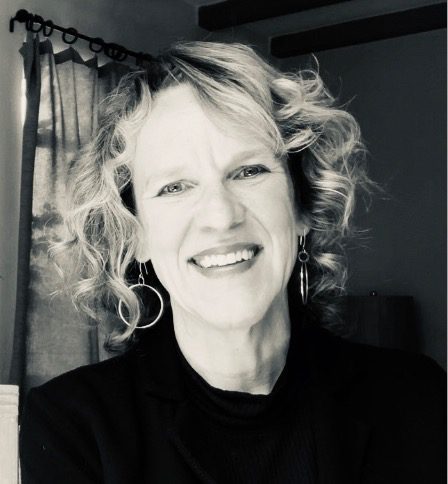Ah, not to be cut off, not through the slightest partition shut out from the law of the stars. The inner — what is it? if not intensified sky, hurled through with birds and deep with the wind of homecoming.
Rainer Maria Rilke
I crawl out of our tent in the middle of the night to gaze, head thrown back, at a sky full of stars alive and wild. Camped along the Piedra River at the edge of the Weminuche Wilderness, we’re sleeping under one of the darker skies in North America; I don’t want to miss this opportunity to look up. It’s not just the sheer magnificence of the stars or the mind-bending truth that they shine all the time even when we can’t see them. It’s the way that with each breath I take, it seems their light enters the very fiber of my being. I am no longer just a woman standing barefoot next to an orange tent in the middle of a cold Colorado night. I feel, inexplicably, as close to the shimmering galaxy above as I am to the ground beneath my feet. Starlight, soil, water, skin, the night air — the distinctions, for a moment, disappear. The veil thins.
For as long as I can remember, I’ve been entranced by the mystery of our individual smallness in the scheme of the universe. As a child on my grandparents’ farm in Nebraska, I would wander out to the wheat field, flatten a spot, and disappear from the known world. I’ve always thought my grandpa could have tracked the number of visiting grandchildren by the number of flattened places in the west field. He never said a word, knowing as he did the joy of lying on the ground, smelling the dark soil, and looking sideways at the shafts of light filtered through the wheat’s golden awn and leaves. My grandpa was quiet, not one to offer outright life lessons, but I believe he understood that in that aloneness, I might actually sense my connection to the earth, the air, the light, the sky. That I might, even without the words for it, discover a kind of holy ground.
Gretel Ehrlich writes, “To trace the history of a river or a raindrop…is also to trace the history of the soul, the history of the mind descending and arising in the body. In both, we constantly see and stumble on divinity.” I’ve come to understand that knowing the natural world is a way of knowing myself — and that both yield an experience of belonging in the world. Call it a stumbling on divinity or as Rilke says above, a kind of homecoming; either way, it is an enhanced awareness of the interconnection of all things. I find it most easily when I disappear down a trail in the mountains near my home.
Over twenty-five years ago, I moved from Washington, D.C. to build a life for myself at the foot of 10,000 foot peaks. Ever since, I’ve hiked the mountains of the American Southwest not only for the sheer pleasure and beauty of it but as a kind of spiritual practice. I climb up out of the sage and juniper and find my place among the aspen groves. And just as the aspens are connected by a web of life-sustaining roots, just as the separate-seeming trees are one organism, I become inseparable from the natural world and the long arc of time. It is there, standing under the canopy of quaking leaves, that I’m connected not only to Rilke’s “law of the stars” but to an internal life “deep with the wind of homecoming.”
The extent to which we find belonging in relationship to one another can ebb and flow: friendships evolve, communities shift, we grow and change, a beloved dies. There may be days when it feels that the sharp edge of loneliness will never end. And yet, the morning sun, the afternoon rain, the smell of roses or pine, and the constellation of stars in the night sky — these are ever-present. While they are not a substitute for deep conversation or the loving arms of family and friends, the natural world is one of the keys to belonging and is always beckoning: Look, listen, touch, taste, smell. You — yes, you — are not alone. Lie down on the softness of the earth. Seek the shade of a generous tree. Breathe the air that comes from the deep forest. Walk out at night and look up at the ancient stars.
Cold and shivering, I crawl back into the coziness of the warm tent. I close my eyes and listen to the strange lullaby of the riverbed rocks tumbling beneath the Piedra’s current. With each attempt to get comfortable, the hard tree root under my sleeping pad reminds me that I am, in fact, quite firmly tethered to the earth. I finally settle in and make a silent, humble request that the forest’s creatures will let us safely sleep. Thank you, thank you, thank you, I whisper. The night wind blows, and the coyotes sing from ridge to ridge.
Photo by Denys Nevozhai



Comments are now closed on this page. We invite you to join the conversation in our new community space. We hope to see you there!